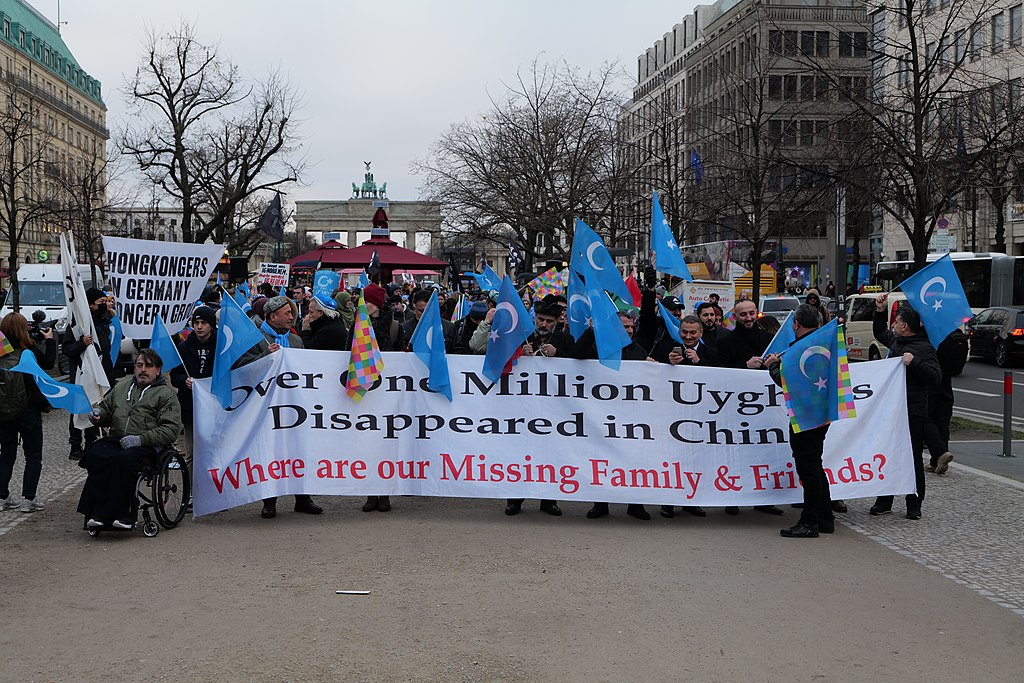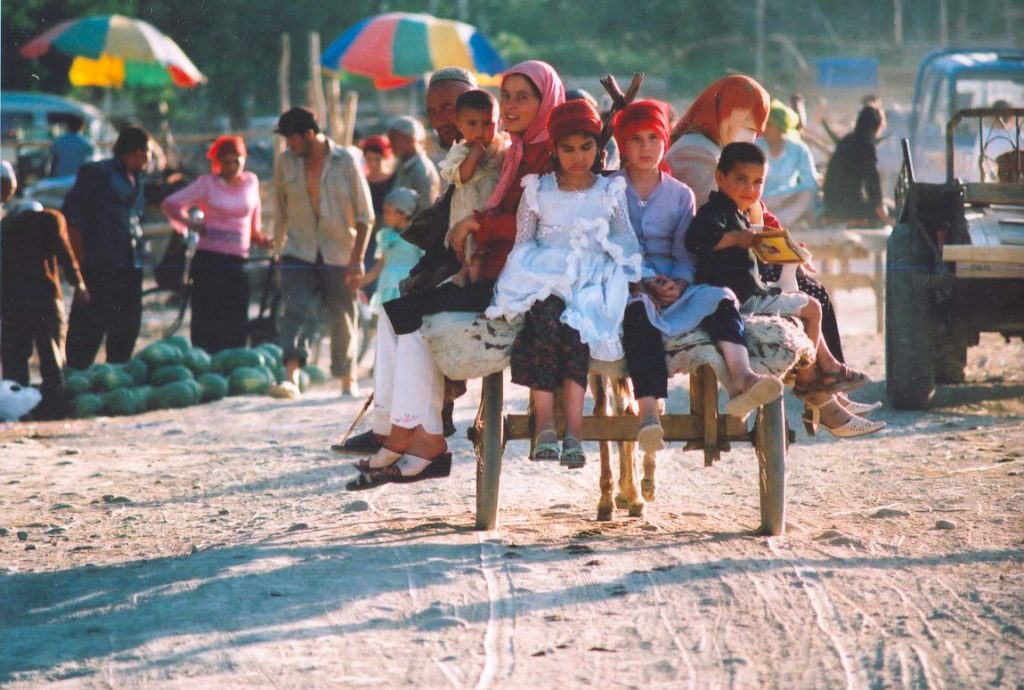Estonia has joined 26 other countries in a statement expressing concern with the treatment of Uyghurs by China and the situation of human rights in Hong Kong after China imposed new legislation on the special administrative region to crack down the opposition.
The joint declaration, delivered in Geneva to the United Nations Human Rights Council on 30 June by the British ambassador to the World Trade Organisation and the United Nations, Julian Braithwaite, urges the UN’s High Commissioner to be granted access to the Xinjiang region at the earliest opportunity, saying that a “number of the signatories to this statement submitted a letter last year to express concern about arbitrary detention, widespread surveillance and restrictions, particularly targeting Uyghurs and other minorities in Xinjiang. These deep concerns have been reinforced by additional information now in the public domain.”
A new report says China’s suppression of Uyghurs, Kazakhs and other chiefly Muslim ethnic minorities in northwest China now meets the United Nations definition of genocide, and that China has forced mass sterilisation, abortions and mandatory birth control on up to more than 1.5 million people.
The report, compiled by the China expert, Adrian Zenz, says Uyghur women and other ethnic minorities are being threatened with internment in the camps for refusing to abort pregnancies that exceed birth quotas and women who had fewer than the two children legally permitted were involuntarily fitted with intra-uterine devices, while others were coerced into receiving sterilisation surgeries.

Hong Kong is guaranteed a high degree of autonomy
“We further wish to raise our deep and growing concerns at the imposition of legislation related to national security on Hong Kong, with clear implications for the human rights of people in Hong Kong,” the statement declared.
“The Joint Declaration, a legally binding treaty, registered with the United Nations, sets out that Hong Kong is guaranteed a high degree of autonomy and rights and freedoms, including those of the person, of the press, of assembly and of association and that the ICCPR and ICESCR shall remain in force. These rights are also guaranteed in the basic law for the Hong Kong Special Administrative Region.”
ICCPR stands for the International Covenant on Civil and Political Rights, a multilateral treaty that commits its parties to respect the civil and political rights of individuals, including the right to life, freedom of religion, freedom of speech, freedom of assembly, electoral rights and rights to due process and a fair trial. China is a signatory to the treaty, but hasn’t ratified it.
ICESCR is short for the International Covenant on Economic, Social and Cultural Rights, a multilateral treaty that commits its parties to work toward the granting of economic, social and cultural rights to the non-self-governing and trust territories and individuals, including labour rights and the right to health, the right to education and the right to an adequate standard of living. China is a signatory to the treaty and has ratified it.
On 29 June, China unveiled a new law for Hong Kong that grants the authorities sweeping powers to crack down on opposition to Beijing at home and abroad with heavy prison sentences for vaguely defined political crimes. By the law, mainland China expanded its control over Hong Kong to quash pro-democracy protests, allows the courts to suppress the city’s protest movements and enables the Chinese security apparatus to pervade many layers of Hong Kong’s society.

Urging China to reconsider the legislation
According to the joint statement, making “such a law without the direct participation of Hong Kong’s people, legislature or judiciary of Hong Kong undermines ‘One Country, Two Systems’”.
“We urge the Chinese and Hong Kong governments to reconsider the imposition of this legislation and to engage Hong Kong’s people, institutions and judiciary to prevent further erosion of the rights and freedoms that the people of Hong Kong have enjoyed for many years,” the joint statement continued.
The signatories also encouraged the UN High Commissioner “to provide regular information on the human rights situation in Xinjiang and Hong Kong, in order to safeguard the rights and freedoms which are guaranteed under international law”.
The statement was supported by Australia, Austria, Belgium, Belize, Canada, Denmark, Estonia, Finland, France, Iceland, Ireland, Germany, Japan, Latvia, Liechtenstein, Lithuania, Luxembourg, the Marshall Islands, the Netherlands, New Zealand, Norway, Palau, Slovakia, Slovenia, Sweden, Switzerland, and the United Kingdom.
Cover: An Uyghur family returning from a bazaar in 2005. China’s suppression of Uyghurs, Kazakhs and other chiefly Muslim ethnic minorities in northwest China now meets the United Nations definition of genocide. Photo by Todenhoff, shared under the CC BY-SA 2.0 licence.

